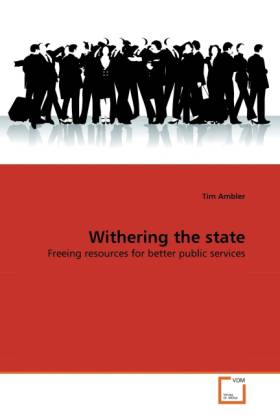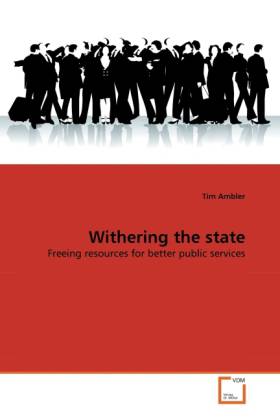
Door een staking bij bpost kan je online bestelling op dit moment iets langer onderweg zijn dan voorzien. Dringend iets nodig? Onze winkels ontvangen jou met open armen!
- Afhalen na 1 uur in een winkel met voorraad
- Gratis thuislevering in België vanaf € 30
- Ruim aanbod met 7 miljoen producten
Door een staking bij bpost kan je online bestelling op dit moment iets langer onderweg zijn dan voorzien. Dringend iets nodig? Onze winkels ontvangen jou met open armen!
- Afhalen na 1 uur in een winkel met voorraad
- Gratis thuislevering in België vanaf € 30
- Ruim aanbod met 7 miljoen producten
Zoeken
Omschrijving
Since the 2008 financial crash, governments, and especially the UK government, have been looking to roll back the state partly to save public expenditure and reduce the deficit but also to make public services more cost effective. Five years earlier, it had become obvious to a few that the free spending UK Labour government was piling up a huge deficit and was oblivious of taxpayer value. The most conspicuous example was in the Ministry of Defence where the bureaucracy burgeoned at the same time as the fighting front line dwindled.. It was obvious then that procurement was a mess and it has become more obvious since. Similarly in health and education, huge amounts were being wasted in layers of management and bureaucracy. Taxpayer Value should be the guiding principle: the money serving no good purpose other than building the pensions of civil servants should have been, and should be, removed and spent on schools, teachers, primary care and hospitals. This book is the forerunner of the publications that have flowed since 2008 and anticipates many of the answers. Perhaps it is being implemented now but it should have been implemented then.
Specificaties
Betrokkenen
- Auteur(s):
- Uitgeverij:
Inhoud
- Aantal bladzijden:
- 108
- Taal:
- Engels
Eigenschappen
- Productcode (EAN):
- 9783639307351
- Verschijningsdatum:
- 15/03/2011
- Uitvoering:
- Paperback
- Formaat:
- Trade paperback (VS)
- Afmetingen:
- 152 mm x 229 mm
- Gewicht:
- 167 g

Alleen bij Standaard Boekhandel
+ 96 punten op je klantenkaart van Standaard Boekhandel
Beoordelingen
We publiceren alleen reviews die voldoen aan de voorwaarden voor reviews. Bekijk onze voorwaarden voor reviews.











